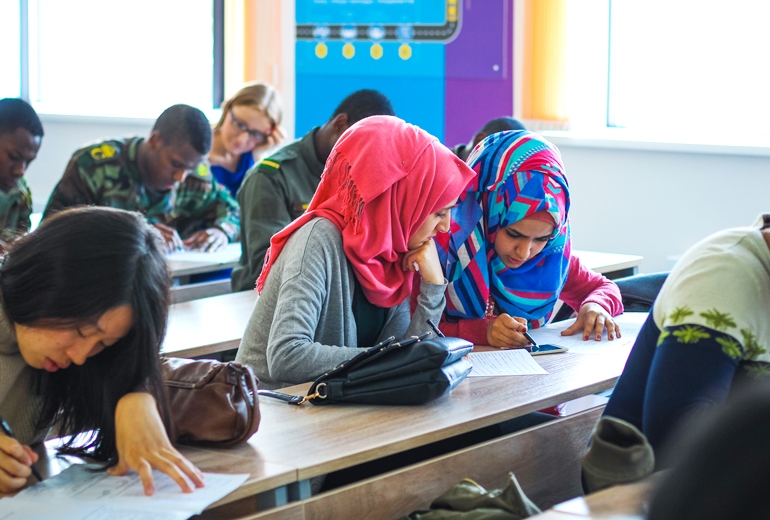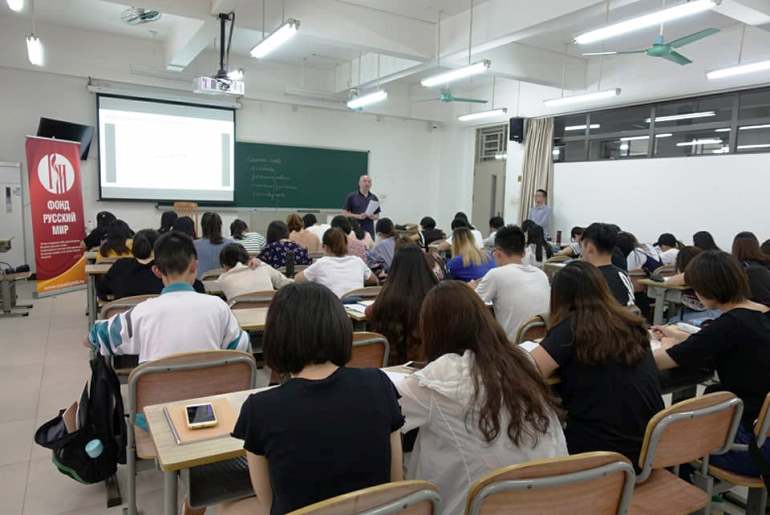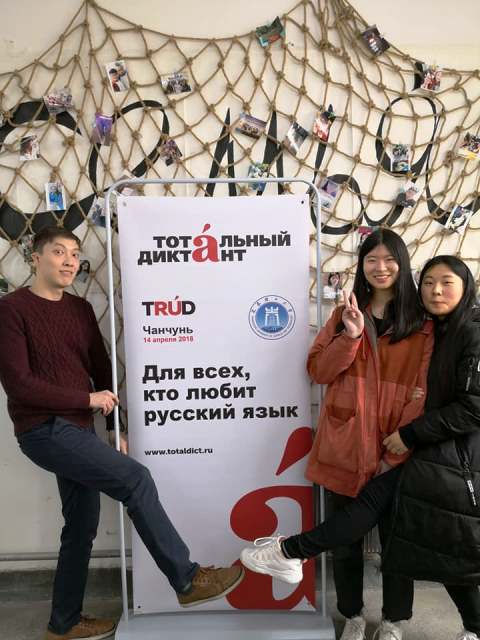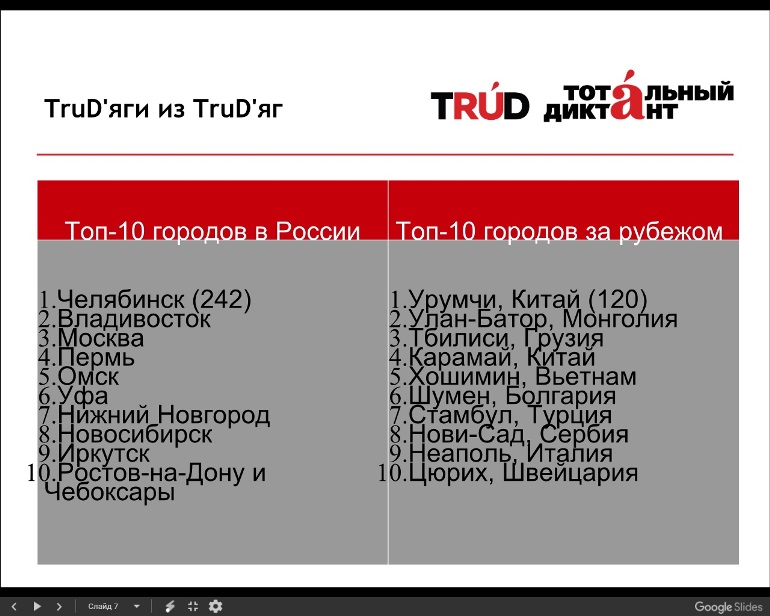A large-scale educational event Total Dictation is going to take place on April 13, 2019. Hundreds of thousands of people in Russia and abroad are going to test their literacy. Not everyone knows that Total Dictation has a "younger brother" - the TruD test. It was created specifically for those who study Russian as a foreign language, bilingual children, their parents and all those who are not yet fluent in Russian. Olga Rebkovets, the head of Total Dictation project, told us about the test and its first results.
- We all know how Total Dictation goes: at a certain time, people gather in a lecture room and write under dictation of a local person. What does the TruD test for foreigners look like? How do they find out about it? Who gathers them together?
In the case of TruD, the principle is the same - at a certain time, people gather together, but take a test, not a dictation. TruD is an integral part of the Total dictation campaign, which is meant for participants learning Russian as a foreign language. They find about the campaign through social networks, media, posters in educational institutions, etc. Russian teachers play an especially important role, inviting their students to take part in the campaign. You can check if TruD test is available in your town by checking
Total Dictation website.
How is TruD created? Is it based on the same text as people write under dictation? It looks like a difficult task, for Total Dictation is tough for native Russian speakers.
Yes, the test is compiled on the basis of the text of the dictation, in order to give the participants of TruD the opportunity to feel part of a global event. Each year, members of the Expert Council of Total Dictation Tatiana Ivanovna Belitsa, Olga Mikhaylovna Alexandrova from Novosibirsk State University, and their colleague from Far Eastern Federal University Irina Borisovna Cherepovskaya, compose the TruD test.

The test is updated annually thanks to feedback, and the format changes slightly every year. The key was the transition from a traditional text for students of Russian as a foreign language with assignments for vocabulary and grammar to the format of competition. All tasks are arranged according to the level of difficulty so that a different level of knowledge does not prevent from participating in the event. The last task remains unchanged - to write under dictation an excerpt from the main text. This part is optional because of its complexity and is evaluated separately. The passage is taken from the text of the dictation in unchanged form.
– How did the idea of such a test come about and who is its target audience?
As Total Dictation developed, people who loved the Russian language but did not speak well enough to write a long and complex text began to show interest in the event. We tried to change the format of the competition to support their desire to learn Russian, so that this audience could participate in the event. The result was a lively and comprehensible quiz in Russian, which is within the power of both those who are actively studying Russian and those who have barely used the language during the last twenty years.
TruD is designed for all those who study Russian as a foreign language: students who come to Russian universities from abroad; students of foreign universities studying Russian; non-Russian people with a Russian language heritage, including bilingual children. In the case of TruD, the motto of Total dictation is still relevant: "For anyone who can write in Russian."
- TruD has already been written three times, from 2016 to 2018. Can you sum up any results? Do you have excellent marks and how many? What characteristic difficulties arise when writing a test?
We see that TruD was positively received by the participants. This is confirmed by the statistical data: the number of people taking the test doubles every year, the competition covers a growing number of countries and cities. The teachers of Russian from different cities and countries actively send their opinions and recommendations, which is especially important and valuable.
We carefully studying the statistics for TruD, including the number of excellent results - 95 points or more. In 2018, they stated for 8.6% of the total number of participants. Of course, this does not give grounds for any assessment of the general level of language proficiency.
– In which countries and cities is TruD most popular and why? In your opinion, did the test manage to become an independent brand?
In 2018, the number of participating cities exceeded one hundred and amounted to 133 communities in 44 countries. From the very first year TruD is written on all continents of the Earth with the exception of Antarctica. However, the test is most popular in Asia - in China, Vietnam, Turkey, Kazakhstan, Mongolia, Syria. This result was largely made possible thanks to the support of the Far Eastern branch of the Russkiy mir Foundation, Far Eastern Federal University and the Asia-Pacific Association of Teachers of Russian Language and Literature. In Europe, the citizens of Serbia, Germany, Italy, Spain, France, Slovakia, Bulgaria and Switzerland show the greatest interest. Vladivostok, Perm and Chelyabinsk became the leading Russian cities in 2018 by the number of participants.
It is early to say that TruD is widely recognized as a separate brand, the project is still young. However, an interested community is already being formed, and there are cities where only the test is carried out, with no dictation. We see that every year the number of participants doubles. We started with 1,069 people, a year later, 2,500 took part in TruD, the last year record is 5,250 people.
– Will there be any innovations in the test in 2019 and do you expect further audience growth - both by country and by the number of participants?
In 2019, the main innovation for the entire Total dictation competition, including TruD, will be the inclusion of a separate passage of the text and the corresponding test the United States. The author of the dictation of 2019 Pavel Bassinsky has already written the text in four parts. We hope that in the countries of South and North America this fact will become an additional stimulus for growth. Experience shows that on these continents start to get interested in Total Dictation and the test itself. Now we are focusing not on the number of participants, but on the quality of TruD. This approach will lead to an increase in interest in the test and in the event as a whole. We hope that in 2019 we will be able to present participants around the world a real holiday of the Russian language. Peace, TruD, April!











